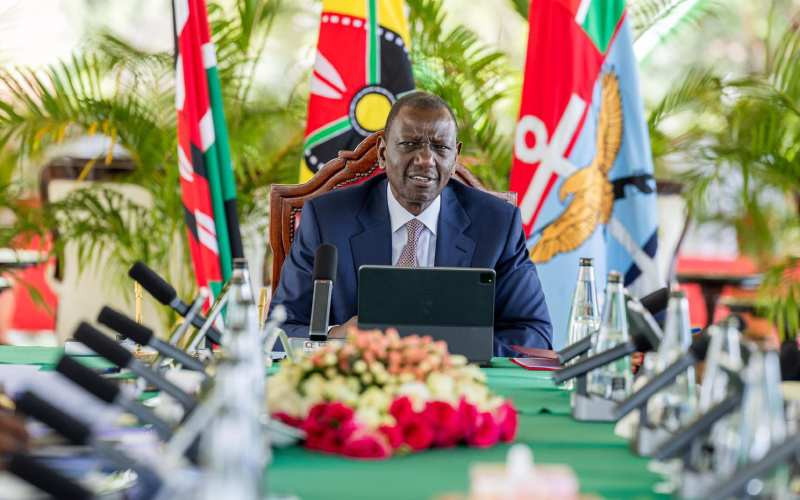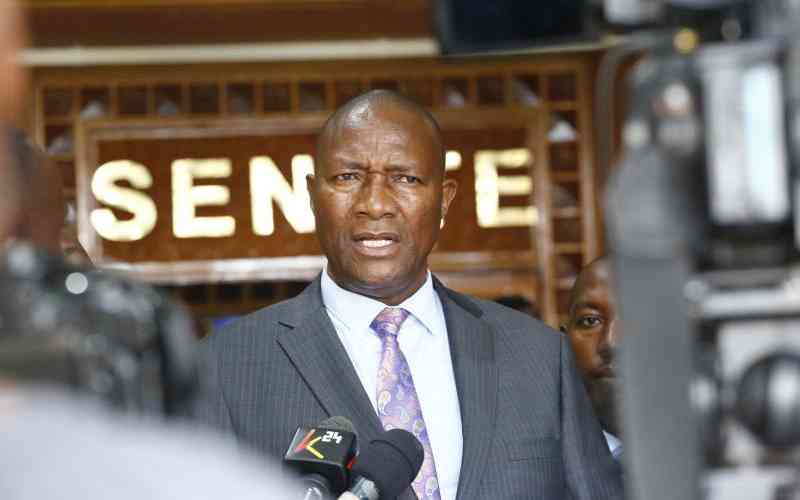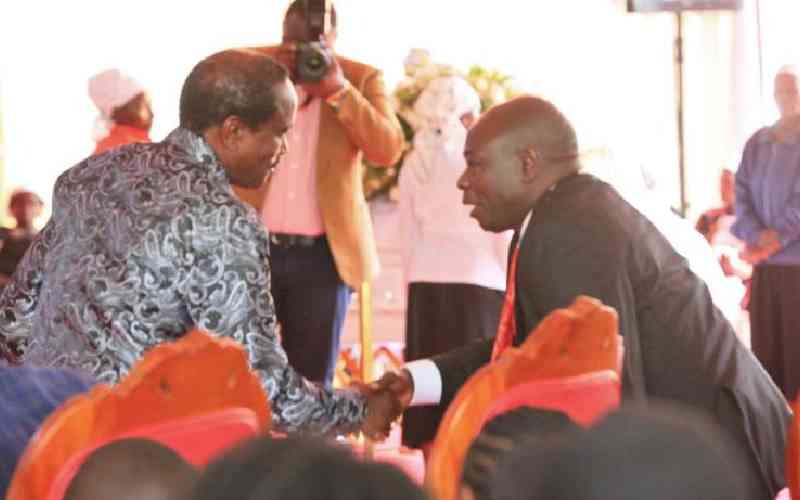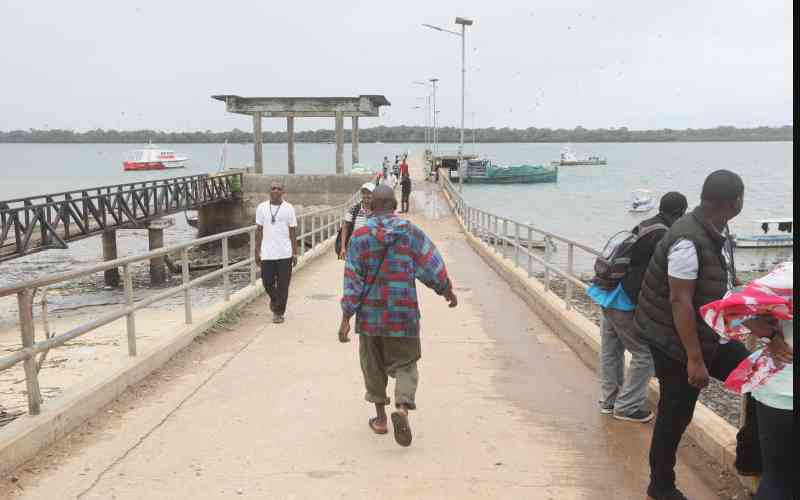By Ababu Namwamba
A Lion was chasing a chamois along a valley. He had all but caught it, and with longing eyes was anticipating a certain and satisfying meal. It seemed as if it were utterly impossible for the victim to escape: for a deep ravine appeared to bar the way for both the hunter and the hunted. But the nimble chamois gathering together all its strength, shot like an arrow from a bow across the chasm and stood still on the rocky cliff on the other side. Our lion pulled up short. But at that moment a friend of his happened to be near at hand.
That friend was the fox. “What!” said he, “with your strength and agility, is it possible that you will yield to a feeble chamois? You have only to will, and you will be able to work wonders. Though the abyss be deep, yet, if you are only in earnest, I am certain you will clear it. Surely you can confide in my disinterested friendship. I would not expose your life to danger if I were not so well aware of your strength and dexterity”.
The lion’s blood waxed hot, and began to boil in his veins. He flung himself with all his might into space. But he could not clear the chasm; so down he tumbled headlong, and was killed by the fall. Then what did his dear friend do? He cautiously made his way down to the bottom of the ravine, and there, out in the open space and the free air, seeing that the lion wanted neither flattery nor obedience now, he set to work to pay the last sad rites to his dead friend, and in a month picked his bones clean.
Across the jungle, two frogs dwelt in the same pool. The pool being dried up in the summer heat, they left and set out together to seek another home. As they went along they chanced upon a deep well, amply supplied with water, on seeing which one of the frogs said to the other: “let us descend and make our abode in this well, it will furnish us with shelter and food.” The other replied with greater caution: “but suppose the water should fail us, how can we get out again from so great a depth?”
And in the world of humans, in 415 B.C., ancient Athenians attacked Sicily, believing their expedition would bring them riches, power and a glorious ending to the sixteen-year Peloponnesian War.
They did not consider the dangers of an invasion so far from home; did not foresee that the Sicilians would fight all the harder since the battles were on their own homeland, or that all of Athens’ enemies would band together against them, or that war would break out on several fronts, stretching their forces way too thin.
The Sicilian expedition was a complete disaster, leading to the destruction of one of the greatest civilisations of all time. The Athenians were led into this disaster by their hearts, not their minds. They saw only the chance of glory, not the dangers that loomed in the distance.
Any keen observer of the Uhuru presidency must have already noticed two manifestly worrisome trends. One, there are way too many court jesters, each noisily outdoing the other in “urging” the president this way or that way. The result is a deafening cacophony that leaves one wondering if the president ever gets a quiet moment with his own conscience or genuine wise counsel amidst the cantankerous din. Two, the president seems to be in perpetual crisis mode, and his handling of weighty matters appears reactionary, jerky and shortsighted. Fatal fumbles with burgeoning insecurity; increasing intolerance to press freedom; the panic-roulette with the ICC imbroglio; and some alarming diplomatic gaffes exemplified by the rather juvenile anti-West rhetoric are just but a few danger signals that Uhuru may be listening to some very puerile “advice”.
To Cardinal de Retz, “the most ordinary cause of people’s mistakes is their being too much frightened at the present danger, and not enough so at that which is remote.” Montaigne adds: “how much easier it is never to get in than to get yourself out!...in their beginnings it is we who guide affairs and hold them in our power, but so often once they are set in motion, it is they which guide us and sweep us along.” And Robert Green cautions that so much of power is not about what you do but what you do not do — the rash and foolish actions that you refrain from before they get you into trouble. Careful, careful, Mr President!
 The Standard Group Plc is a
multi-media organization with investments in media platforms spanning newspaper
print operations, television, radio broadcasting, digital and online services. The
Standard Group is recognized as a leading multi-media house in Kenya with a key
influence in matters of national and international interest.
The Standard Group Plc is a
multi-media organization with investments in media platforms spanning newspaper
print operations, television, radio broadcasting, digital and online services. The
Standard Group is recognized as a leading multi-media house in Kenya with a key
influence in matters of national and international interest.
 The Standard Group Plc is a
multi-media organization with investments in media platforms spanning newspaper
print operations, television, radio broadcasting, digital and online services. The
Standard Group is recognized as a leading multi-media house in Kenya with a key
influence in matters of national and international interest.
The Standard Group Plc is a
multi-media organization with investments in media platforms spanning newspaper
print operations, television, radio broadcasting, digital and online services. The
Standard Group is recognized as a leading multi-media house in Kenya with a key
influence in matters of national and international interest.








